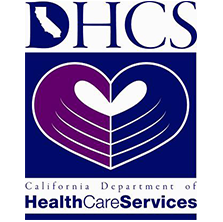PTSD Treatment Programs for Women can vary widely in their clinical approaches as well as in the long term results they produce. First and foremost, any PTSD (Post Traumatic Stress Disorder) treatment program specifically designed for women must recognize that PTSD Symptoms for Women are not always the same as those experienced by men. Women deal with emotions and traumatic events differently from men, and a quality PTSD takes these differences into account. In fact, many trauma treatment centers have devoted a portion of their facility solely to the treatment of women suffering from PTSD, and others have dedicated their entire program to Trauma Treatment for Women and do not offer services for male patients.
In California and throughout the US, any quality program offered by a reputable Rehab Treatment Center will offer treatment that is individualized to meet the specific needs and concerns of each survivor of trauma. Recognizing that each person and her situation is unique, a good trauma center will perform a careful interview and evaluation of each patient. This interview process will almost always include a questionnaire assessment during the initial entrance process, as well as along the treatment path. It is also important that the rehab center not attempt to perform trauma therapy while the patient is currently in crisis. If a woman is extremely depressed, suicidal, experiencing panic attacks or exhibiting disorganized thinking, for instance, these conditions must be addressed first. Additionally, if the patient is currently exposed to trauma in her every day environment, due to continuing domestic violence, abuse, or homelessness, for instance, handling these crisis problems is foremost and must be taken care of before any trauma treatment can begin. The first step is often removing the PTSD sufferer from her home environment into any of several well qualified PTSD Treatment Programs for Women.
PTSD Symptoms for Women can be treated, once the patient is out of crisis and in a state of mind that is conducive to treatment. Some of the symptoms the rehab center staff will address include:
“Flashbacks” or reliving the traumatic event in her mind – These mental reoccurrences can be nearly as traumatic as the original event and are often triggered by sounds or events similar to those experienced during the event that caused the patient’s PTSD.
Avoidance of similar situations and environments – While performing Trauma Treatment for Women, it is common to see women working hard to avoid any situation that might remind them of the original traumatic event that triggered PTSD. This is a basic survival mechanism and perfectly logical, but it can lead to an inability to perform normal daily tasks, and some women even fear leaving their homes.
Isolation – In an effort to avoid ever talking about their traumatic event or events, many women exhibiting PTSD symptoms begin to isolate themselves from family and peer groups. This lack of social interaction is not healthy and must be addressed by PTSD Treatment Programs for Women.
Hyper vigilance – Many women suffering from PTSD experience what is known as “hyperarousal.” Simply put, this is a state in which the woman exhibiting PTSD symptoms is always “on alert” in an attempt to ensure the original traumatic event does not reoccur. Like situation avoidance, this makes logical sense, but the consequences can be debilitating, as the woman is living in a constant state of fear and stress.
To address the above symptoms and get women suffering from PTSD on the road to recovery, a Rehab Treatment Center will devise a plan of therapy that is uniquely tailored to the needs and experiences of each woman. This plan will include a detailed exploration of the memories of the trauma, which will help the trauma survivor cope with post-traumatic memories as well as the reminders of those memories. For this step in the process, it is crucial that the therapy takes place in a nurturing, relaxed, caring environment. The more comfortable the patient feels in the atmosphere in which she is receiving treatment, the less likely she is to feel overwhelmed or emotionally numb while exploring feelings and memories related to her PTSD. Because the trauma experienced often involves abuse or violence at the hands of one or more men in the patient’s life, the type of environment necessary for recovery is often only achieved in a program offering Trauma Treatment for Women in an all-female facility. In fact, the trauma focused exploration that enables survivors to regain their self-esteem and self-confidence can be difficult or impossible in a program that includes men. This is not a sexist approach at all but because of the necessity for the woman to open up completely, and the common reluctance to do so in front of men – especially if her trauma involved men.
Wile women suffering from PTSD do not necessarily turn to alcohol or drugs to deal with their trauma, it is not uncommon. For this reason, PTSD Treatment Programs for Women are often offered by rehab centers that also provide an addiction recovery program. The risk of abuse of alcohol or drugs is undoubtedly higher in PTSD sufferers. In fact, a recent study found that as many as 52% of those diagnosed with PTSD had also received a diagnosis of alcohol abuse or dependence and 35% had a drug abuse or dependence problem. These numbers are two to three times the average among all adults. Because a drug or alcohol addiction will severely interfere with successful treatment of PTSD, detox is necessary in these cases before PTSD treatment can begin in earnest. Therefore a Rehab Treatment Center offering both drug and alcohol treatment programs as well as Trauma Treatment for Women is the best choice.
Safe Harbor Treatment Center for Women is revered as one of the top PTSD treatment centers and drug rehab centers in California. If you or a loved one is in need of help, please consider choosing a rehab center in California for recovery.
Visit our website or call for more information today: 877-660-7623
START YOUR JOURNEY WITH
SAFE HARBOR HOUSE
(310) 861-4157
Contact Us Today
Verify Your Insurance




